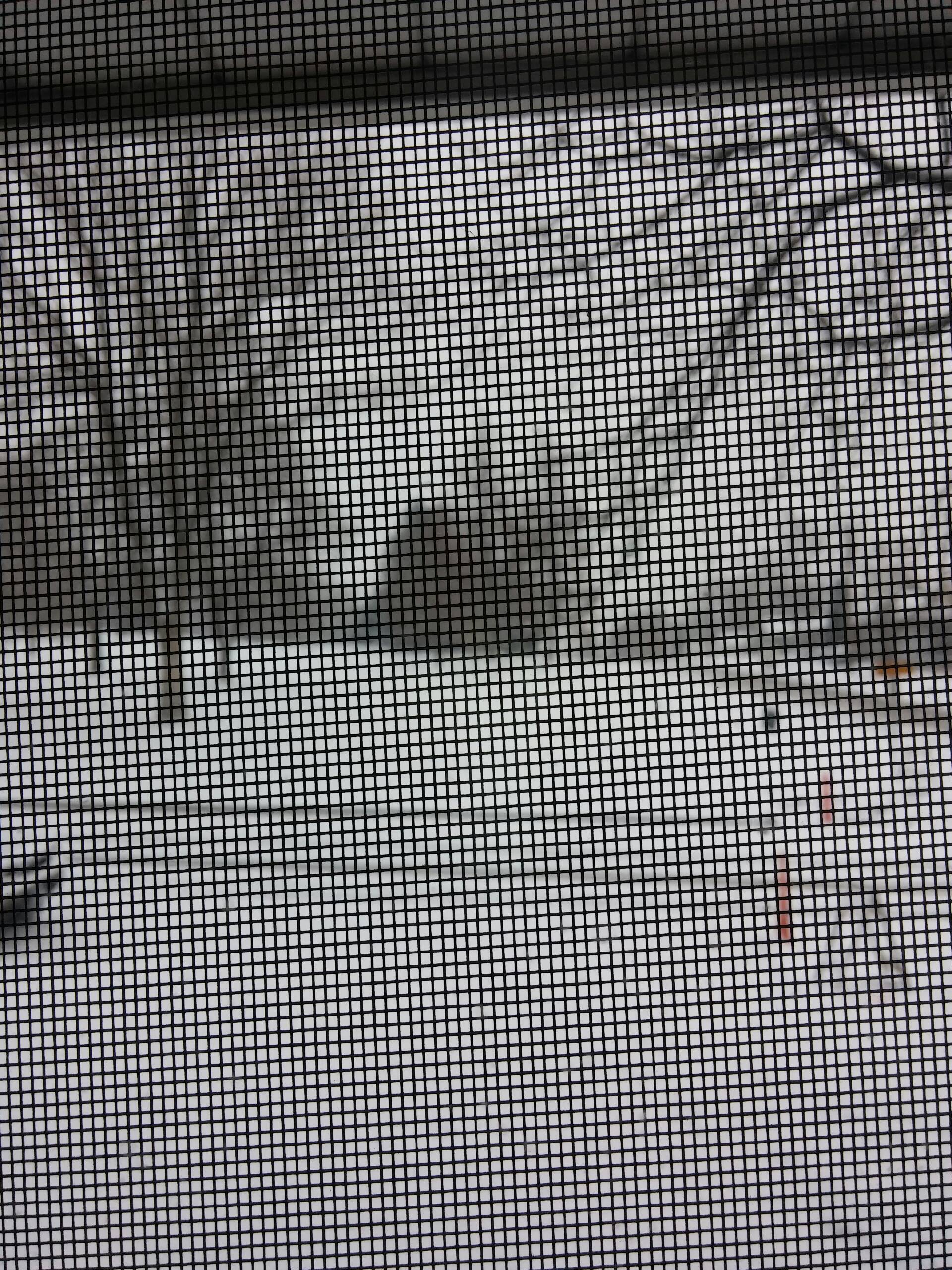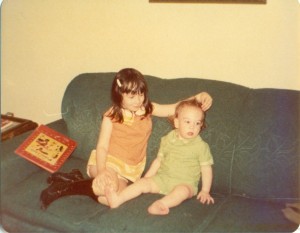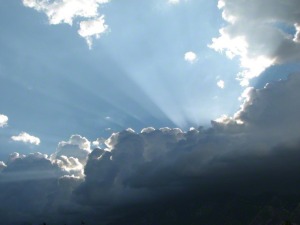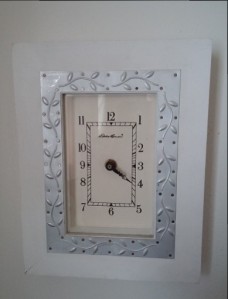Of Blessings and Punishments
I wrote the following on a return. I thought I’d share. Beware: I capitalize the names of trees because I feel they earn prominence.
Do you ever feel like you’re being punished, I ask of my little brother, as the red sun bleeds into a horizon only a handful of trees obstruct, in Somewheresville, Nebraska. Jordan takes a more personal approach to disaster, ruin, or bad results, which he explains with thumb swipes of his phone and constant checking on the cats in the back seat. His ruin is laced with articles and research, and he goes on to quote from economists and philosophers.
Ruin, at least for me, is this trip, my husband claiming his new job, and because of it, moving me away from one of the most beautiful spots in the world: the Hudson Valley. My husband went on ahead in the truck, with our meager belongings. Jordan met up with me in New York, to help me drive the cats back to Denver. Also, though, to roam the wonderland of New York City.
As we drive into open road, I remember my little brother at age four, rocking in a chair while six-kid chaos ensued as we got ready for high school. Being the littlest, the giants of the house left him alone, in silence. His innocence came out in his blond hair and ever frowning reflection that all good things go away. It echoed in his response. If things turn out wrong, he said in that even tone he now adopts at thirty, than it is all on him and he takes full responsibility for the decision that created his demise.
This is our last day of our three day traipse across I-80, from Beacon, New York to my previously lived in city, Denver, Colorado. I explain that karma is getting me back, having to return to a place that words like “barren” and “brown” fit well. (Any time of year, you can fly into Denver International Airport and view all the tones of sepia land below.) My year in Beacon fulfilled me too much, I report. I watched an ancient Magnolia bloom on the corner of Cliff and Beacon Streets, a tree I knew only in my first twelve years in California. Also, the Mimosa on the corner, a weed tree in New York, the cartoony, and frilly blooms put forth dust-broom pink fronds. I pulled them down, risking the neighbor’s scorn, and brushed them against my cheek like my sister and I did as kids. My feet attached hard and fast to Beacon’s supple landscape. Hydrangeas and Rhododendrons overtook yards and reminded me that you can never have too much of a good thing. Oh, your purple and pink Hydrangea is engulfing your garage? So sad. (One bush was engulfing a neighbor’s whole front walkway, and he let it, like allowing a Queen to step on your hand.)
Some entity decided that I was having too much fun. I’m convinced that an outside force gave my fiancé the job of his dreams elsewhere, and by elsewhere, I mean, if this state (where he got the new job, pulling us away from New York) could be likened to anything, it is a vast floor that kings throw dregs to their mongrels, Wyoming. Now I will get flack. But I’m willing to take it on. My brother thinks for every action, there is a reaction that he deserves. I cut off the last part. I like to think I do nice things for people. Maybe in Beacon I absorbed more of the Hudson River than my fair share? Did I commune too much, listening intently to lapping rhythms of water, scrutinizing washed up and smooth branches, all bunched and moving en masse, so in tune with heartbeats and other such muted comforts?
While I packed up the last of the cleaning supplies on the back porch room of our Beacon house, through the glass door, my cardinal I had named Caravaggio, came to say goodbye. He landed on the fence, like he normally did, turning his head at the birdfeeder, his bed-head plume flattening in the breeze. Then he stopped and looked at me, turning his head sideways, listening. I couldn’t control the sob that made me feel I was leaving behind a child. My little brother hugged me. The last time we hugged this way, I am not sure. Perhaps when I was fifteen, holding him as a two year old, while at the supermarket, and people thought I was an unwed teen.
My journal of Beacon, New York and our pilgrimage comes to an end and so do my roots that seem to only plunk down where water erodes us, our society slightly frayed, our bodies in rhythm. As we’d entered Pennsylvania, the water inside me receded and that old midwest emptiness began to replace it.
In the car, my brother and I pray that the cats don’t go number two in their box. It’s squished between the driver’s seat and the back seat. At one point, my brother has to rescue the old cat from sleeping in the litter. We are both ignoring our keen knowledge of germs, crossing our fingers that we endure this three day excursion without any bacterial injury. We ruminate on old memories, when we dressed my brother up as a little British boy, asking him to repeat the line from the satirical movie Yellowbeard, “Please, Sir, three farthings for a lump of shit.” How he’s taking a class on how to become a master student, and how it really expands to becoming a master person.
My thoughts are only the bitter match between our family leaving the Mimosa trees and frigid yet rich water at Santa Cruz to the lawn-less and prickly landscape of Tucson, Arizona when I was twelve, which feels the same as leaving the Hudson Valley for the place where tumbleweeds could be harvested, if so desired, in Denver. It really feels the same, but I am now an adult, and should be able to let the feelings wash over and through me, where I finally stand outside myself without the tantrum reaction. Instead, though, I am reminded of our move to Tucson, where my brothers and I dug through our backyard’s hard ground with a kitchen spoon for a match box car extravaganza excavation. I haven’t learned a thing, I admit. Instead, I’ve been sucked back in time, to a place of water, lying dormant and guarded within me. How to mitigate the inner tantrum?
In a New York spring, the cardinals sit high, surveying the tops of trees for their one true love who, with her brown and red camouflage, blends in so well with foliage. I’ve described my cardinal’s call as a torpedo, cutting through morning haze, yet still a gentle yearning to wake me in romance. His urgency ignites mine and in my office, we both searched for that spark, the flame that kept us plodding forward, hurling out our dreams in song, or for me, the written word.
My love affair with the Northern Cardinal will only strengthen as my brother and I duck the silver Saturn under the Great Platte River Road Archway. Out here, in vast acres of last year’s cut corn, still dying back, barn swallows’ aimless zig-zagging sometimes ends at the hard and fast windshield. We pass teepees, I say to remind us of our unfair past, where we decimated an indigenous culture. I reflect on the pictures that made me weep in an undergrad class when the book was passed around, photos of a chief with whole headdress and hand-made leather opposite his “gentrified” self on the next page, wearing a page boy hair cut, parted down the middle and a dark, 1920s suit. The fear and misery in his eyes burned off the page.
In Denver, the house keys are no-where to be found, all of our belongings are dusted with cat litter, and our wish for a shower is even more palpable, as we constantly dust our hands off on our pants and take another load of clothes filled trash bags to the front porch. For the first three days, I note the definitive lack of torpedo morning calls. My old house rejects this east coast, watery version of myself. I have brought too much Hudson with me, its mystery clouding my head, my body rocking as it leaks slowly from me in the dry night.
Flea exoskeletons reveal themselves on my back patio as my un-wrapping reveals my Beacon things. A Japanese beetle jumps out and won’t last long in this heat. I put him out of his misery in the toilet and apologize to the entity and humidity that procured him. As I take my little brother back to Loveland, where he has lived most of his life, I ask him if he’d live in New York. It’s a hard call, he answers. He’d love the access to all kinds of Asian food, which we’d let drip down our faces in frenzy just a week before in Chinatown. He’d love to keep seeing stuff like the Renaissance portraits we’d witnessed at the Met, our mouths dropping at the realness of yellow braids, wishing we could touch them. But what would Mom and Dad do?
Just last week our seventy-year-old Dad needed help lifting the toilet out to secure new flooring. Also, so many times, our mother cooks for him, the meals of our youth, polenta, savory or sweet, frittata, with or without cooked potatoes. I even have a request. The mustard sauce she made up one day, inspired by a recipe but making it her own to drizzle over a plate of corned beef, cabbage and potatoes for St. Patrick’s day.
I admit, I can’t wait to go eat at our cheap Mexican restaurant, where an overloaded plate of taquitos, burrito and enchilada costs 5.99, an unheard of spectacle for New York. I also admit, I suck at gardening in New York, the soil so wet, all my Colorado stand-by perennials died, soaked and moldy.
For today, I need to duck away from my punishment and just go buy a birdfeeder. Perhaps I will fall in love with a Colorado backyard bird. Who knows what could replace the flash of red that skimmed my car often, reminding me of miracles and pockets of this life that burst randomly, out of nowhere, to bless me.








